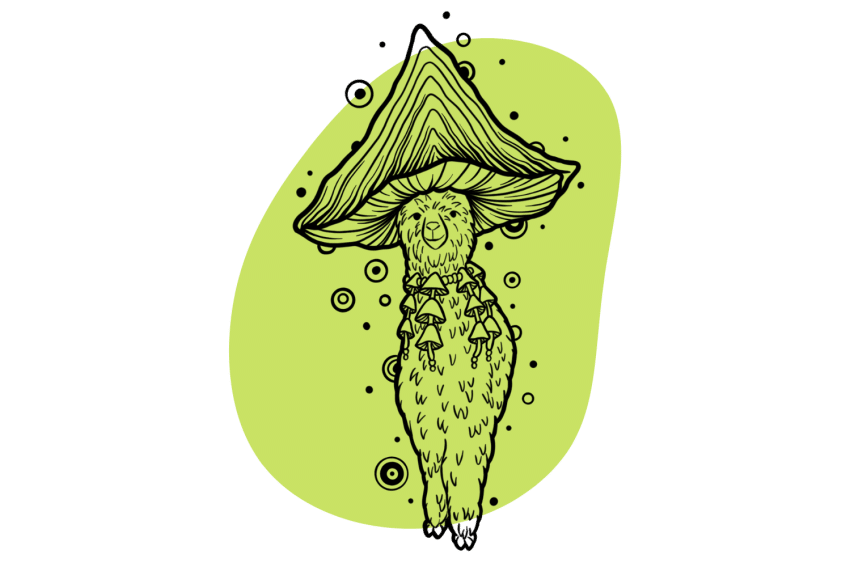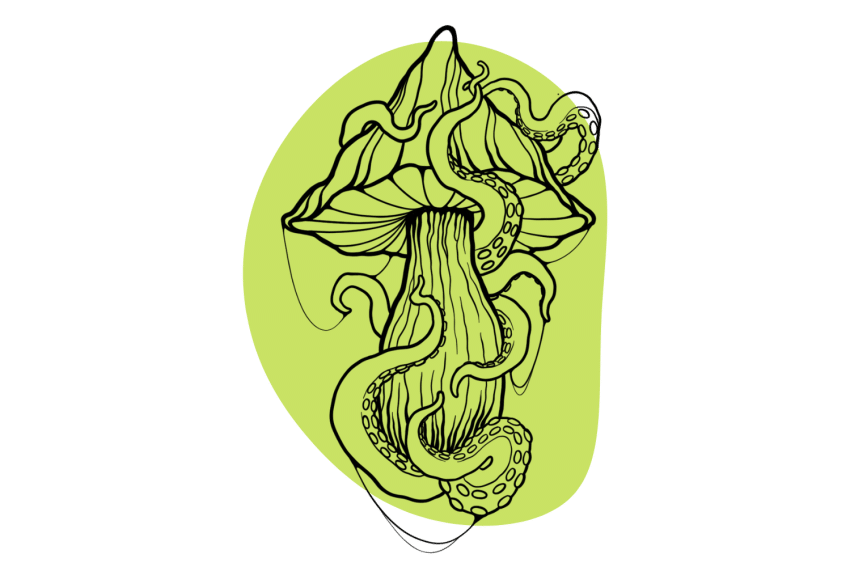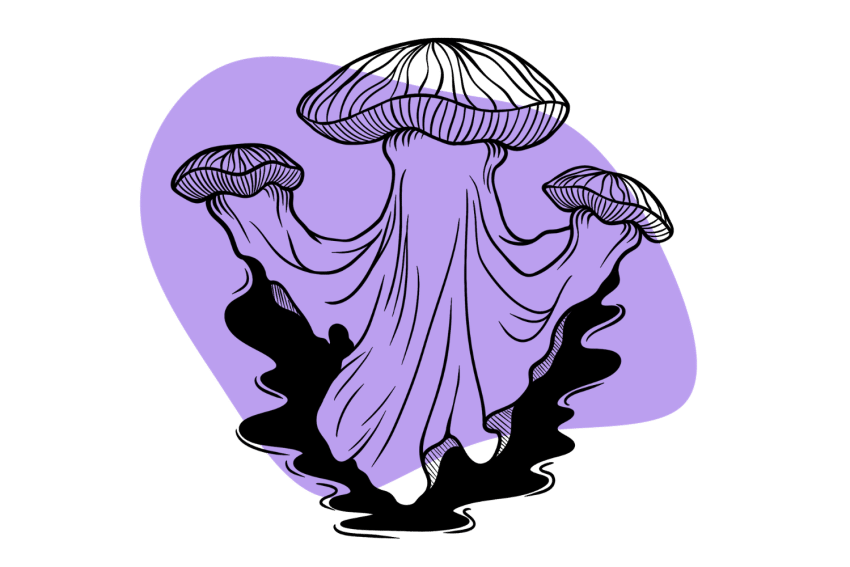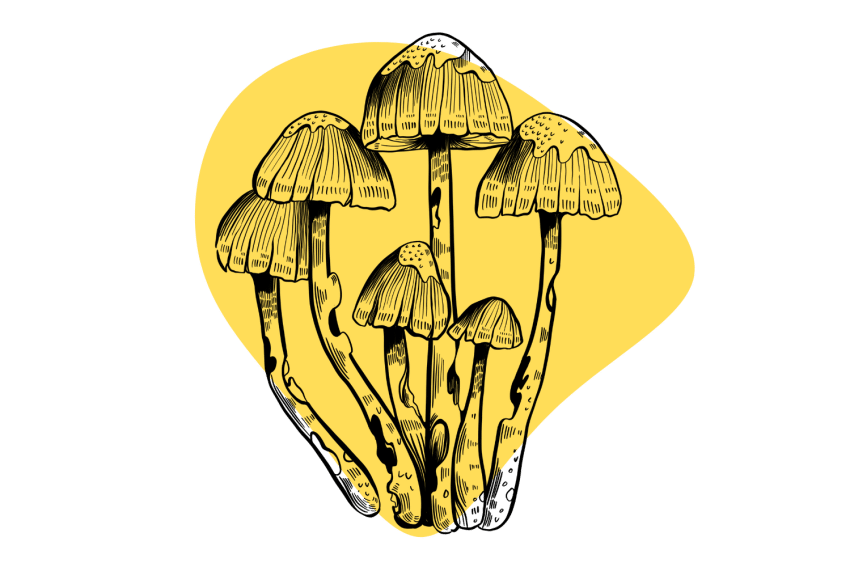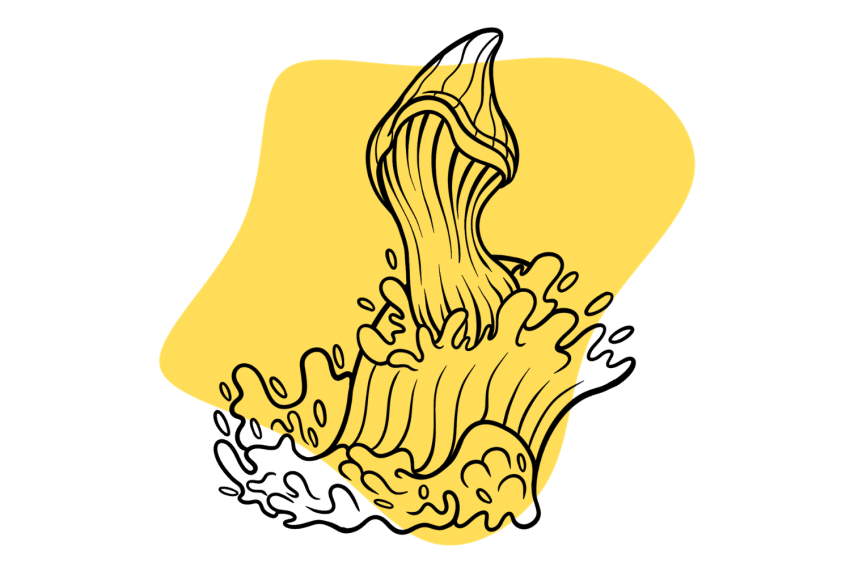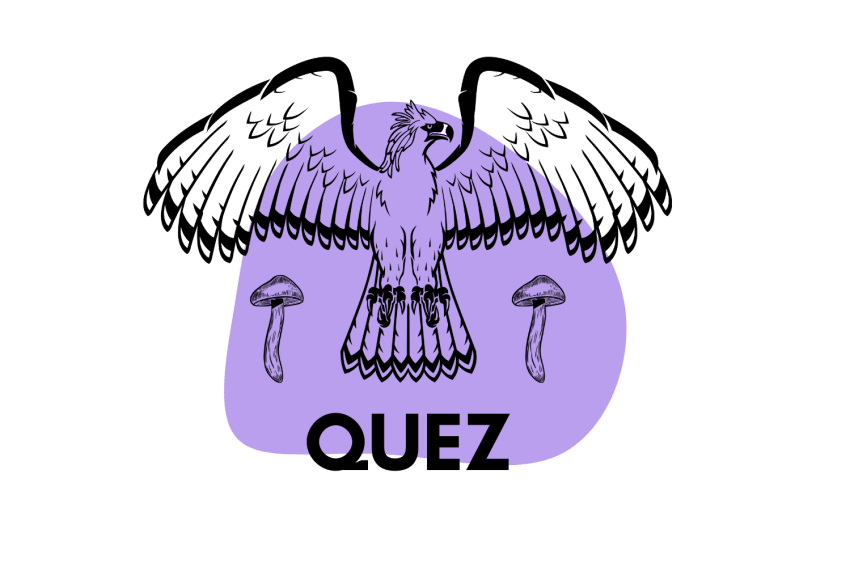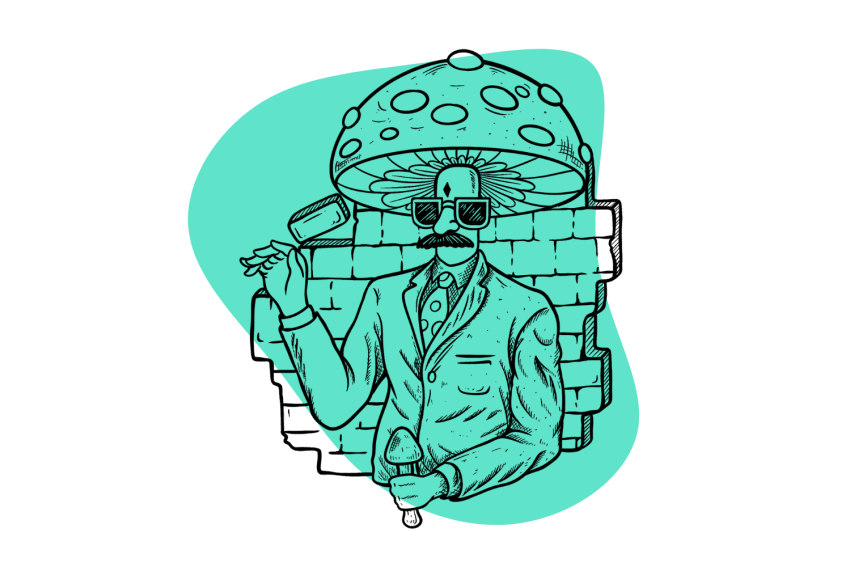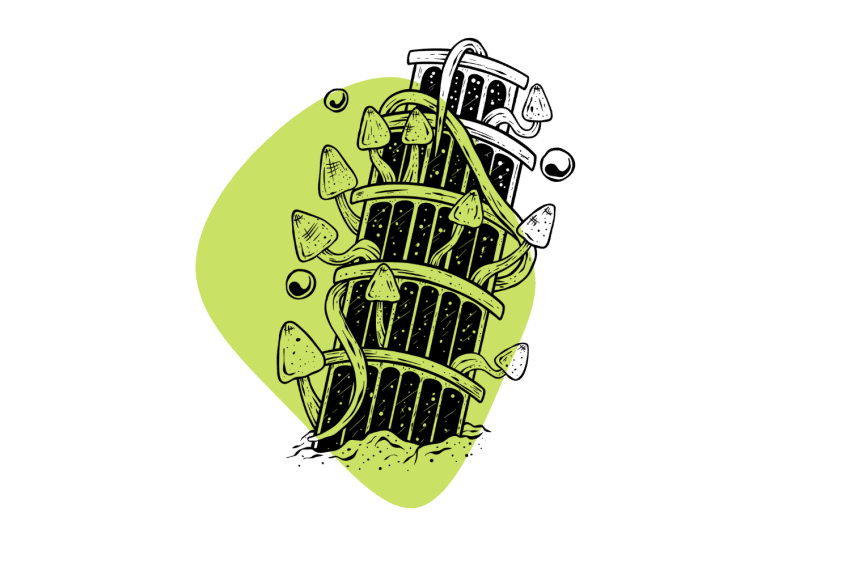2023 Guide to Wisconsin’s Psychedelic Drug Laws
We’ll skip the cheesy jokes 🧀 and get straight to the point — Wisconsin has a long way to go in reforming its drug laws.
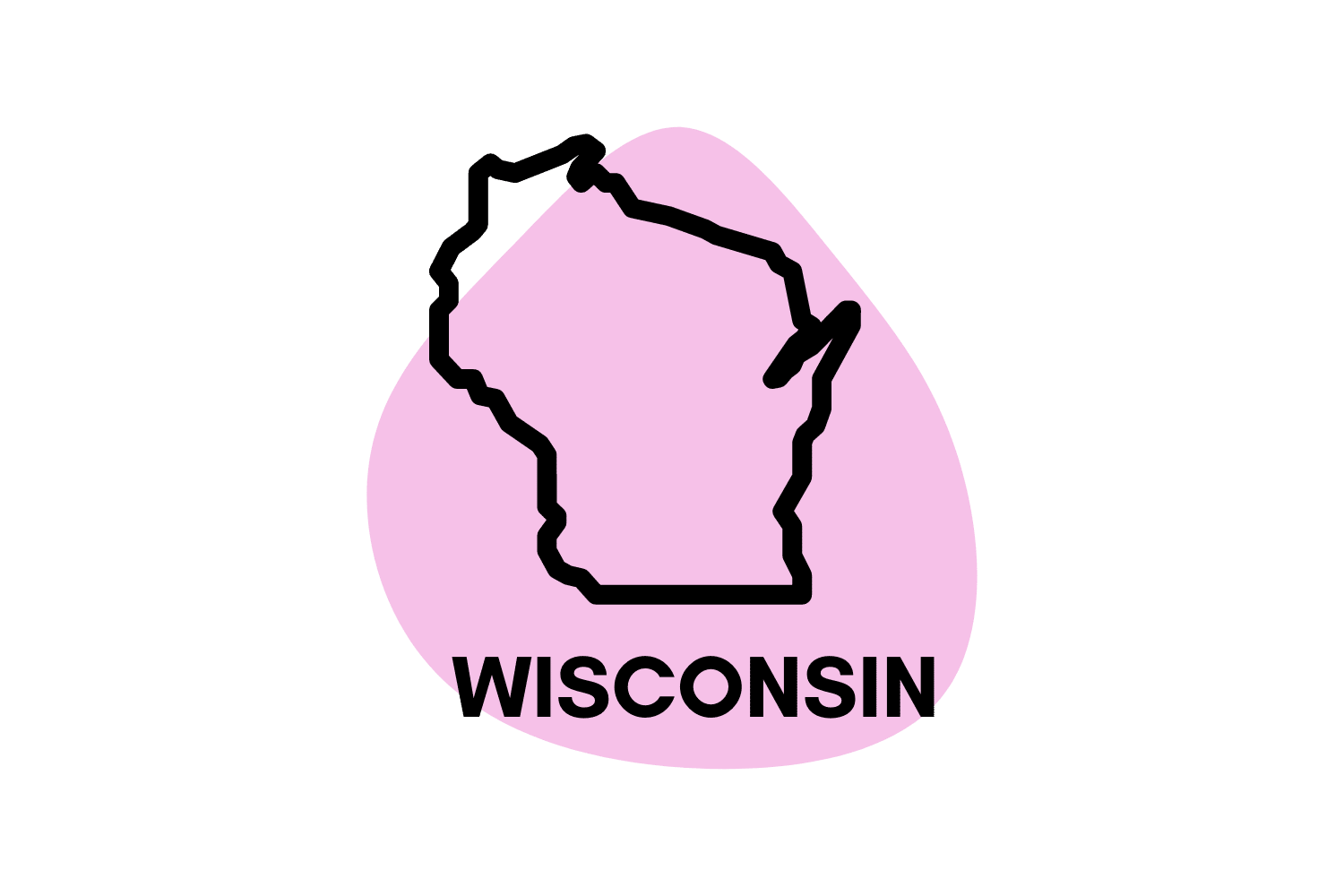
Wisconsin has strict laws regarding psychedelic drugs like LSD, MDMA, or magic mushrooms. Possessing most of these drugs carries harsh penalties and hefty fines.
Wisconsin is also known for its restrictive marijuana laws — only hemp-derived CBD (cannabidiol) and delta 8 THC are legal.
This article will summarize all the relevant drug laws you need to know. Plus, we will talk about the key differences between decriminalization and legalization.
Summary of Psychedelic Drug Laws in Wisconsin
- Most psychedelics carry up to a year in prison and a fine of $1000.
- Ketamine use carries very harsh penalties compared to the rest of the country.
- Both medical and recreational marijuana is illegal.
- Psychedelics are unlikely to be legalized in Wisconsin in the coming years.
Are Magic Mushrooms Legal in Wisconsin?
No, magic mushrooms are illegal in Wisconsin.
The Badger State authorities consider psilocybin, the main compound in shrooms, a Schedule I substance. Therefore, possessing any psychedelic mushroom carries up to a year in prison. Plus, you may also receive a fine of no more than $5,000.
Due to its therapeutic benefits and low risk, some experts recommend reclassifying psilocybin. This would greatly help research, as it’s currently hard to get a permit to study these substances. However, state and federal laws are strict, so it will take time before this happens.
Surprisingly, magic mushroom spores are legal because they don’t contain psilocybin. However, growing them to maturity is illegal — as that’s when they start to produce the substance.
Map of Decriminalization Status: The United States
Where to Buy Magic Mushroom Spores in Wisconsin
Psychedelic mushroom spores are legal in most US, so you can easily find them online and deliver them to your home address in Wisconsin. Just be warned, it’s legal to buy spores under the pretense you’ll be using them for microscopy purposes (DIY mycology research). As soon as the spores are germinated, you’ll be breaking the law.
There are plenty of places to buy spores in the US. Check out companies like Spores 101 and Sporeslab for a wide selection of premium magic mushroom spores.
Related: How to Grow Magic Mushrooms (The Easy Way).
Do Magic Mushrooms Grow Wild in Wisconsin?
Yes, psychedelic mushrooms grow everywhere, including Wisconsin.
Many people love mushroom hunting due to the sheer amount of species you can find if you look hard enough. However, hundreds of non-identified psychedelic mushrooms are probably waiting to be discovered. So here we give you a list of three common species you can find in Wisconsin.
Psilocybe caerulipes
The famous “Blue Foot Mushroom” is prevalent in the US midwest region. This species is hard to find, but it generally grows near rivers and hardwood forests. You will recognize it quickly due to the blue base of the stem.
Psilocybe weilii
This species got its name due to Andrew Weil, a doctor famous for his work involving both magical and medicinal mushrooms. You can find it in coniferous forests or places with lots of red clay in the soil. Its potency is similar to the famed Psilocybe cubensis.
Psilocybe cyanescens
Psilocybe cyanescens shrooms grow primarily in places with lots of decaying wood. For example, you can find them beside trails or in gardens that use wood chips as mulch. Their key feature is their wavy appearance, and they’re present worldwide.
What Are the Medicinal Uses of Shrooms?
Psilocybin, the primary compound in psychedelic mushrooms, has multiple therapeutic benefits. Thanks to the latest research, some countries have legalized the use of magic mushrooms (and similar psychedelics) as a medical treatment.
There are five key therapeutic effects of magic mushrooms that are currently driving the new psychedelic medical movement:
- Magic mushrooms have shown promise in treating depression.
- Magic mushrooms are used to treat post-traumatic stress disorder (PTSD) and other manifestations of psychological trauma.
- Psilocybin therapy has already been approved for treating existential anxiety in terminally ill patients in some parts of the world.
- Psilocybin and LSD are both proven to reduce the severity and frequency of cluster headache attacks.
- Magic mushrooms, LSD, DMT, and ibogaine have all been proven to help with addiction and substance abuse disorders.
Is LSD legal in Wisconsin?
No, LSD is illegal in Wisconsin (Schedule I).
LSD, also known as acid, is a potent psychedelic famous for its influence in the sixties counterculture. It was banned by President Nixon at the start of the War on Drugs campaign.
All research involving LSD was put on hold despite incredible findings. Only recently has this research been allowed to continue, and the findings are picking up where they left off. Over the past five years, an influx of positive findings have been published, suggesting LSD as a potential treatment for depression, anxiety, addiction, and a wide range of other mental illnesses.
Despite this research, regulations have yet to change in the United States. Even the more progressive states have yet to decriminalize LSD. Wisconsin is very unlikely to update these laws in the near future. The best bet for change on this front is a top-level reclassification of LSD within the federal government.
As it stands, LSD is strictly banned in Wisconsin and carries similar penalties as psilocybin and magic mushrooms. If caught with LSD, punishment can involve up to a year in prison and a $1,000 fine.
There are numerous analogs of LSD (lysergamide psychedelics). Due to the Federal Analogue Act, all of these analogs are also illegal in Wisconsin — including LSZ, 1P-LSD, AL-LAD, PRO-LAD, ETH-LAD, and ALD-52.
LSA (lysergic acid amide), the active ingredient in Morning Glory and Hawaiian Baby Woodrose seeds, is listed as a schedule III substance, carrying far milder punishments.
Is DMT Legal in Wisconsin?
No, DMT is also illegal in Wisconsin.
DMT (dimethyltryptamine) is one of the most potent psychedelics on Earth — it’s the primary ingredient in ayahuasca, bufo toad venom, and changa. There are dozens of plant species that contain DMT, but it needs to be isolated and smoked or vaped or mixed with an MAO inhibitor in order to have psychoactive effects.
Possessing any amount of DMT carries up to a year in prison and a $1,000 fine. Extracting and processing are also banned, so we advise you to forget about making homemade DMT.
Is MDMA Legal in Wisconsin?
No, MDMA is illegal in the Badger State.
MDMA (ecstasy) is a Schedule I substance in Wisconsin — which means it carries severe penalties. Possessing any amount of MDMA will land you up to a year in prison and a $1000 fine.
Although MDMA is famous for its role in rave culture, it has multiple therapeutic benefits. For example, some research points to ecstasy as a possible treatment for depression and anxiety. Due to these benefits, some countries, especially Europe, are slowly moving towards legalization.
Related: What is Psychedelic-Assisted Psychotherapy?
Is Ketamine Legal in Wisconsin?
Yes, ketamine is also legal in Wisconsin for medical applications but illegal to use for recreational purposes.
Ketamine is a dissociative psychedelic used for treating depression, PTSD and is even used as an anesthetic during surgical procedures.
Ketamine fits Schedule III under Wisconsin laws. However, despite being a less “dangerous” schedule, it carries harsher penalties. Possessing ketamine without authorization may cost you up to six years in prison and $10,000.
Is Marijuana Legal in Wisconsin?
No, marijuana is illegal in Wisconsin, although some cities have decriminalized it.
While marijuana is prohibited, the penalties are milder than most drugs. Possessing weed in the Badger State carries up to six months in prison. Plus, you’ll receive a fine of around $1000.
Unlike most states, medical marijuana is illegal in Wisconsin. However, CBD, delta 8 THC, and delta 10 THC are legal due to the 2018 Farm Bill. This federal sanction allows cannabinoids extracted from the hemp plant — cannabis plants with less than 0.3% delta 9 THC.
What’s the Difference Between Legalization & Decriminalization?
Although they sound very similar, decriminalization and legalization are different concepts.
Legalizing a substance is the most effective way of reducing drug-related violence and addiction rates. Plus, it increases the purity of the products in the market and frees up prisons and courts. However, most countries are far from legalizing psychedelics due to the stigma these substances still have.
Luckily, there exists an intermediary step. Decriminalizing a substance significantly reduces penalties — although it’s still illegal to sell or use it.
Key Takeaways: What’s the Future of Psychedelics in Wisconsin?
Wisconsin takes a slightly more relaxed stance regarding psychedelics compared to its neighboring states. However, this doesn’t mean that we’re close to legalization. Despite the developments regarding decriminalization in states like Oregon, Wisconsin has not yet taken a stance.
If you’re expecting a sudden change in the Badger State’s laws, you’ll have to give it some time. The best bet is probably to stay put until more states decriminalize psychedelics or the federal government moves to decriminalize or legalize psychedelic compounds.
The most likely change coming just around the corner is the legalization of medical MDMA and the legalization of marijuana by the US federal government.

